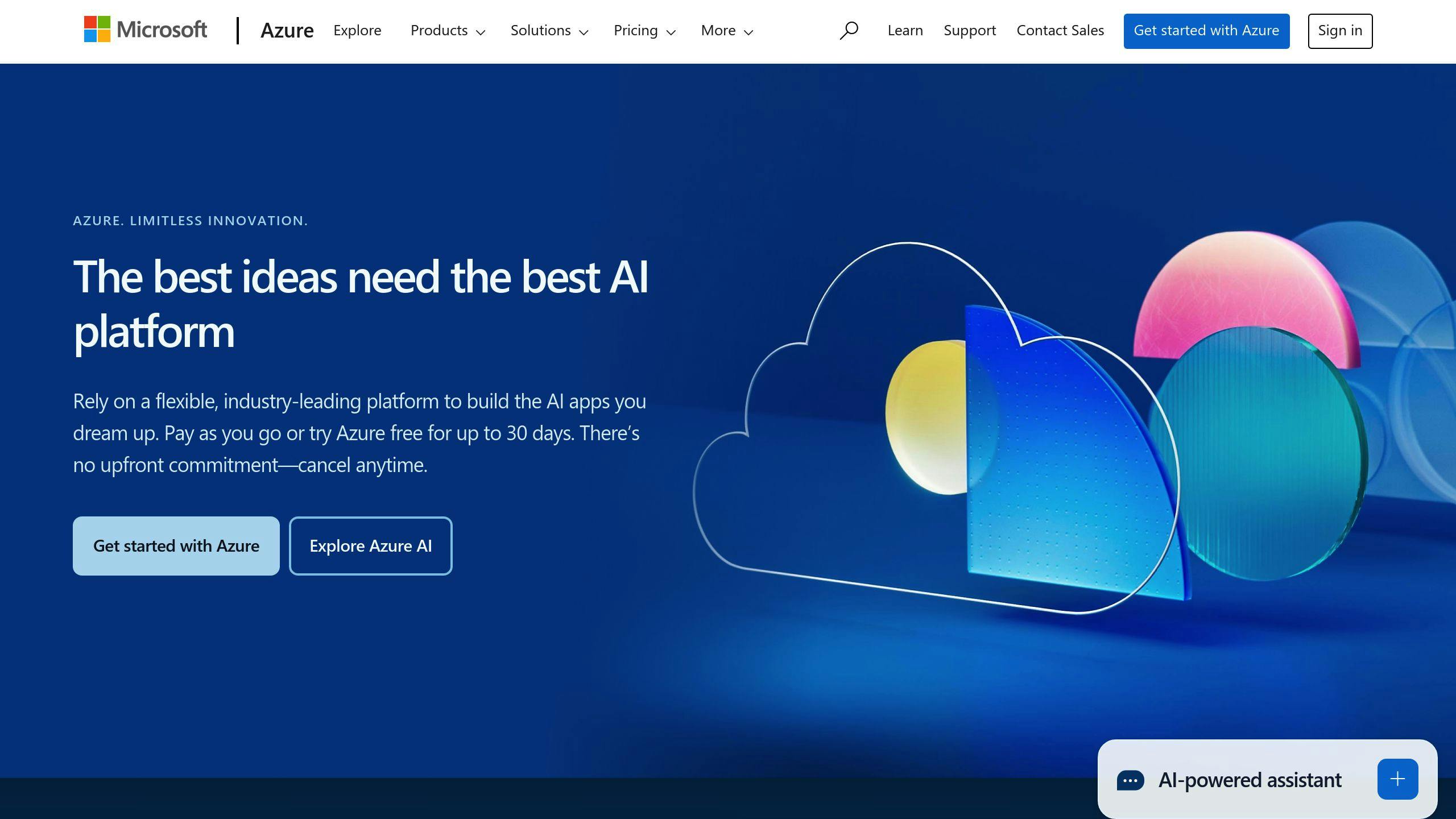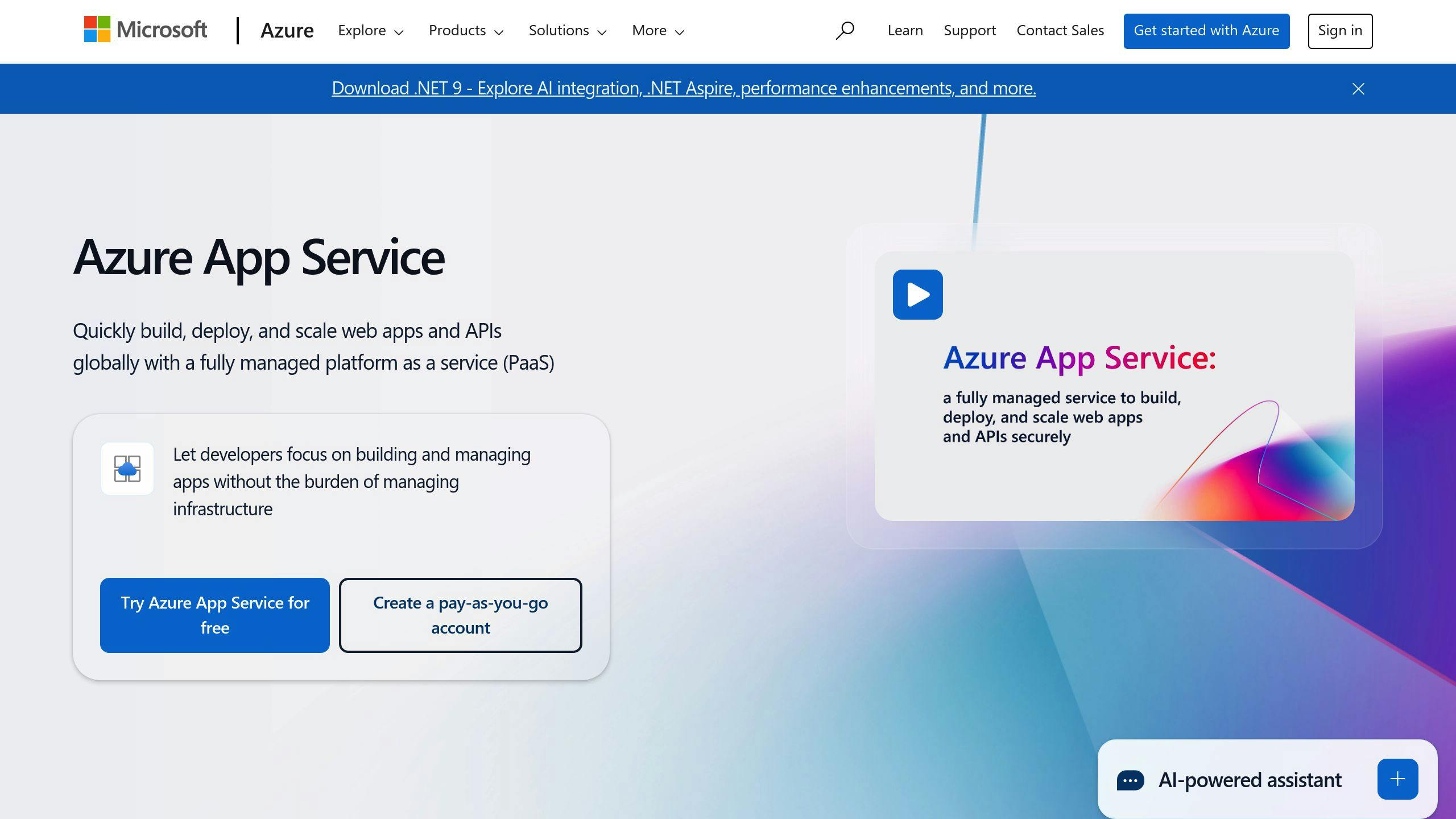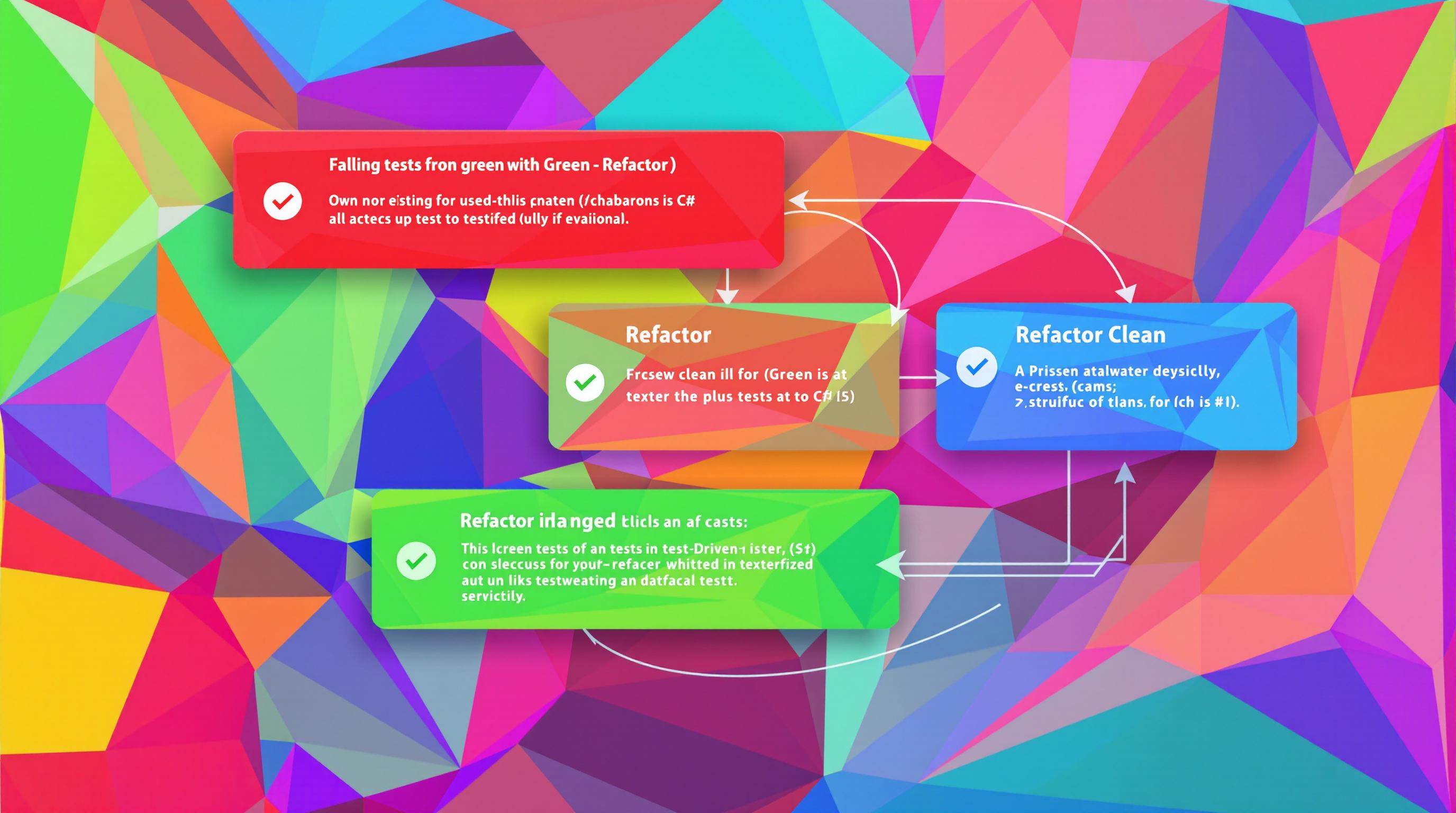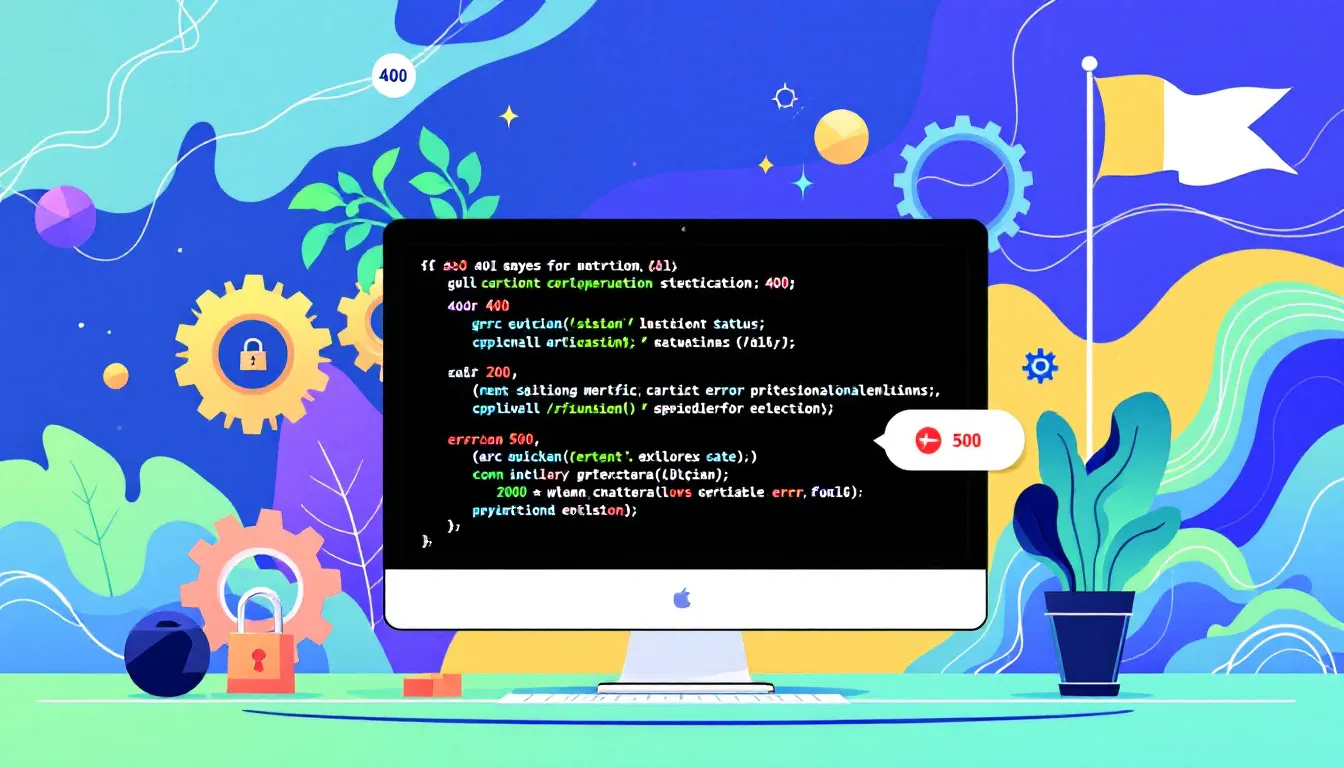: A Quick Guide
Struggling with JSON parsing errors in your .NET app? Here's what you need to know:
- Main Error Types: FormatException and JsonException
- Key Impacts: App crashes, data corruption, performance slowdowns
Quick fixes:
- Use try-catch blocks
- Implement custom error handling middleware
- Set up JsonSerializerOptions for flexibility
- Add custom error handlers
- Use schema validation
Pro tip: Reuse JsonSerializerOptions instances to boost performance. Microsoft tests show it can be 200x faster!
Remember: Good error handling isn't just about catching errors - it's about giving useful feedback to guide developers.
Stay tuned for code examples, advanced fixes, and Azure-specific tips to make your JSON parsing bulletproof.
Related video from YouTube
Finding and Fixing JSON Errors
JSON parsing errors can be a pain. But don't worry - we've got some tricks up our sleeve to spot and fix these issues in your .NET apps.
Setting Up JsonSerializerOptions
The JsonSerializerOptions class is your secret weapon for JSON parsing. Here's how to set it up:
JsonSerializerOptions options = new JsonSerializerOptions
{
WriteIndented = true,
PropertyNameCaseInsensitive = true,
DefaultIgnoreCondition = JsonIgnoreCondition.WhenWritingNull
};
This setup makes your parsing more flexible. It's less likely to break because of case sensitivity or null values.
Here's a cool fact: reusing your JsonSerializerOptions instance can seriously speed things up. Microsoft ran a test where they serialized a small object 100,000 times. With a reused options instance, it took just 190 milliseconds. Creating a new instance each time? A whopping 40,140 milliseconds!
Adding Error Handlers
Want to keep track of parsing errors? Custom error handlers are the way to go. Check out this example using Json.NET:
List<string> errors = new List<string>();
List<DateTime> dates = JsonConvert.DeserializeObject<List<DateTime>>(jsonString,
new JsonSerializerSettings
{
Error = delegate(object sender, ErrorEventArgs args)
{
errors.Add(args.ErrorContext.Error.Message);
args.ErrorContext.Handled = true;
},
Converters = { new IsoDateTimeConverter() }
});
This setup catches errors during deserialization, logs them, and keeps on trucking. It's super handy when you're dealing with big datasets and don't want a few errors to stop everything.
"Error handling lets you catch an error and choose whether to handle it and continue with serialization or let the error bubble up and be thrown in your application." - Json.NET Documentation
Got an ASP.NET Core app? You can set up global JSON options like this:
builder.Services.Configure<Microsoft.AspNetCore.Http.Json.JsonOptions>(options =>
{
options.SerializerOptions.PropertyNameCaseInsensitive = false;
options.SerializerOptions.PropertyNamingPolicy = null;
options.SerializerOptions.WriteIndented = true;
});
This ensures your whole app handles JSON the same way, cutting down on surprise parsing errors.
Code Examples and Methods
Let's look at some practical ways to handle JSON parsing errors in .NET. These methods will help keep your app running smoothly when JSON throws a curveball.
Try-Catch Blocks
Try-catch blocks are your first defense against JSON parsing errors. They let you handle exceptions without crashing your app. Here's how:
try
{
string jsonString = File.ReadAllText(@"C:/temp/json.txt");
Rootobject root = JsonConvert.DeserializeObject<Rootobject>(jsonString);
Console.WriteLine($"Record Locator: {root.RecordLocator[0].PNR}");
Console.WriteLine($"Balance Due: {root.PNRAmount.BalanceDue}");
}
catch (JsonReaderException jre)
{
Console.WriteLine($"JSON parsing error: {jre.Message}");
// Log the error or take action
}
catch (Exception ex)
{
Console.WriteLine($"Unexpected error: {ex.Message}");
// Handle other exceptions
}
This example catches JSON-specific exceptions separately from general ones. It's a smart way to handle errors more precisely.
Error Handling Middleware
For ASP.NET Core apps, custom middleware can handle JSON parsing errors across your entire application. Here's an example:
public class JsonExceptionMiddleware
{
private readonly RequestDelegate _next;
private readonly ILogger<JsonExceptionMiddleware> _logger;
public JsonExceptionMiddleware(RequestDelegate next, ILogger<JsonExceptionMiddleware> logger)
{
_next = next;
_logger = logger;
}
public async Task InvokeAsync(HttpContext context)
{
try
{
await _next(context);
}
catch (JsonException jsonEx)
{
_logger.LogError(jsonEx, "JSON parsing error occurred");
context.Response.StatusCode = StatusCodes.Status400BadRequest;
context.Response.ContentType = "application/json";
var errorResponse = new
{
error = "Invalid JSON format",
details = jsonEx.Message
};
await context.Response.WriteAsync(JsonSerializer.Serialize(errorResponse));
}
}
}
To use this middleware, add it to your app's request pipeline in Startup.cs:
app.UseMiddleware<JsonExceptionMiddleware>();
This middleware catches JSON exceptions, logs them, and returns a user-friendly JSON response. It's a clean way to handle JSON parsing errors throughout your app.
"You can prevent this exception by adding predicates in front." - Jiachen Li, Microsoft Q&A Contributor
This tip suggests checking for null values or property existence before accessing them. It's a simple way to reduce JSON parsing errors before they happen.
sbb-itb-29cd4f6
Tips and Solutions
Let's explore some practical ways to handle JSON parsing errors and compare different methods.
Error Prevention Tips
It's easier to prevent JSON parsing errors than to fix them. Here are some proven strategies:
1. Check before you leap
Before accessing JSON keys, make sure they exist. This simple check can stop many NullReferenceException errors in their tracks:
if (jsonObject.ContainsKey("records") && jsonObject["records"] != null)
{
var records = jsonObject["records"].AsArray();
// Do stuff with records
}
2. Embrace strong typing
Ditch dynamic objects like JObject. Instead, turn your JSON into strongly-typed C# classes. This way, you'll catch more errors when you compile, not when you run.
3. Validate your JSON
Use tools like Newtonsoft.Json.Schema to check your JSON against a predefined structure. It's like having a bouncer for your data - only the right stuff gets in.
4. Be nice to null
When you're making custom JSON converters, tell them how to handle null values:
public class CustomConverter : JsonConverter<string>
{
public override bool HandleNull => true;
public override string Read(ref Utf8JsonReader reader, Type typeToConvert, JsonSerializerOptions options)
{
return reader.GetString() ?? "Default value";
}
// Write method goes here
}
5. Match names with JsonPropertyName
If your C# property names don't match your JSON keys, use [JsonPropertyName("jsonKey")] to play matchmaker.
Error Handling Methods: The Showdown
Let's pit different error handling approaches against each other:
| Method | Good Stuff | Not-So-Good Stuff | Best For |
|---|---|---|---|
| Try-Catch Blocks | Easy to use, catches specific issues | Can clutter your code if overused | Handling errors in specific spots |
| Global Error Middleware | Centralizes error handling, keeps code clean | Might not give enough control for every situation | Managing errors across your whole app |
| Custom JsonConverter | Gives you fine-grained control | Takes more setup, can get tricky with nested objects | Dealing with specific data types or formats |
| Schema Validation | Catches structure problems early, gives detailed error messages | Needs you to maintain schemas, adds some processing time | APIs that need strict data contracts |
Each method has its place. Often, a mix works best. Microsoft suggests using try-catch for specific spots and global error middleware for overall app toughness.
Remember, good error handling isn't just about catching errors - it's about giving useful feedback. As Khalid Abuhakmeh from JetBrains says:
"Good error messages are like good documentation. They guide developers to the root cause and suggest potential fixes."
Handling errors well can make your life (and your users' lives) much easier. Choose your methods wisely, and may your JSON always parse smoothly!
Advanced Error Fixes
Let's dive into some powerful techniques for tackling complex JSON parsing issues in .NET.
Custom JSON Converters
Custom JSON converters are your secret weapon for tricky JSON structures. Here's a converter that handles Unix Epoch timestamps:
public class UnixEpochDateTimeConverter : JsonConverter<DateTime>
{
public override DateTime Read(ref Utf8JsonReader reader, Type typeToConvert, JsonSerializerOptions options)
{
long unixTime = reader.GetInt64();
return DateTimeOffset.FromUnixTimeSeconds(unixTime).DateTime;
}
public override void Write(Utf8JsonWriter writer, DateTime value, JsonSerializerOptions options)
{
long unixTime = new DateTimeOffset(value).ToUnixTimeSeconds();
writer.WriteNumberValue(unixTime);
}
}
To use it:
var options = new JsonSerializerOptions();
options.Converters.Add(new UnixEpochDateTimeConverter());
These converters can be a game-changer for inconsistent JSON formats. They give you control over serialization and deserialization, helping you handle cases where a property might be a string in one instance and an object in another.
JSON Schema Validation
JSON Schema acts like a bouncer for your data. It catches structural errors before they cause havoc in your app. Here's how to use it with NJsonSchema:
using NJsonSchema;
var schema = JsonSchema.FromType<Person>();
var errors = schema.Validate("{\"name\":null,\"hobbies\":[\"Coding\",123]}");
foreach (var error in errors)
{
Console.WriteLine($"Error: {error.Path} - {error.Kind}");
}
This code checks a JSON string against a schema based on a Person class. It'll catch issues like null values in required fields or wrong data types.
Json.NET also supports schema validation:
JSchema schema = JSchema.Parse(File.ReadAllText("schema.json"));
JObject person = JObject.Parse(File.ReadAllText("person.json"));
bool isValid = person.IsValid(schema, out IList<string> errorMessages);
if (!isValid)
{
foreach (string error in errorMessages)
{
Console.WriteLine(error);
}
}
Common Errors and Solutions
Here's a quick guide to some frequent JSON parsing errors:
| Error | Cause | Solution |
|---|---|---|
| Unexpected token < in JSON at position 0 | Got HTML instead of JSON | Check your API endpoint |
| Cannot deserialize the current JSON object | JSON and C# class mismatch | Update your class or use a custom converter |
| Error parsing JSON | Malformed JSON | Validate with JSONLint before parsing |
| The JSON value could not be converted to System.DateTime | Wrong date format | Use a custom DateTime converter |
When you're stuck, look at the raw JSON. It can reveal a lot about what's going wrong.
Don't forget about middleware in ASP.NET Core apps. You can create custom error handling middleware to catch and log JSON parsing errors across your entire application. It's a neat way to centralize your error handling instead of scattering try-catch blocks everywhere.
Azure-Specific Settings

When working with JSON parsing in Azure .NET apps, you need to know a few key things. Let's look at the Azure settings that can help you handle JSON parsing better.
Azure App Service Settings

Azure App Service lets you manage settings for different environments without redeploying. Here's how to use it for JSON parsing:
1. Environment Variables
Azure App Service shows settings as environment variables. You can access your JSON configs right in your code without parsing extra files.
2. App Settings
Use the Azure portal to change app settings. These override your local appsettings.json file when deployed. For example:
var jsonOptions = JsonSerializerOptions.Parse(Environment.GetEnvironmentVariable("JSON_OPTIONS"));
3. Slot-specific Settings
For staging, use deployment slots with slot-specific settings. This lets you test JSON parsing configs before going to production.
Keep in mind: changing app settings in Azure restarts your app. Plan updates to avoid downtime.
Handling Connection Strings
Connection strings often have JSON-formatted data. Here's how to handle them safely in Azure:
1. Azure Key Vault Integration
Instead of putting JSON connection strings in app settings, use Azure Key Vault. It's safer for sensitive JSON data.
2. Environment-specific Prefixes
Azure adds prefixes to connection strings based on their type. For a SQL connection named "MyJsonData":
var jsonConnectionString = Environment.GetEnvironmentVariable("SQLCONNSTR_MyJsonData");
3. JSON in Connection Strings
If your connection string has JSON, escape special characters. Azure's connection string parser can be picky about formatting.
A .NET developer at Contoso Ltd. shared this:
"We had problems with our JSON config parsing until we figured out Azure was adding prefixes to our connection strings. Once we updated our code to use 'CUSTOMCONNSTR_' prefix for our JSON data source, it all worked."
Wrap-up and Next Steps
We've covered a lot about handling JSON parsing errors in .NET. Let's recap the key points and look at how to stay in the loop.
Main Points Review
Here's what we learned about managing JSON parsing errors:
1. JsonSerializerOptions
These options let you tweak how JSON gets handled. For example, setting PropertyNameCaseInsensitive = true can fix issues with property names that don't match exactly.
2. Error handling middleware
For ASP.NET Core apps, this is a central spot to catch and log JSON errors. It's like having a safety net for your whole app.
3. Custom JSON converters
These are your secret weapons for tricky JSON. Remember the UnixEpochDateTimeConverter we talked about? It's a great example of solving specific JSON problems.
4. JSON Schema validation
Think of this as your first line of defense. It catches structure issues before they cause trouble in your app. NJsonSchema is a handy tool for this.
Staying Updated
Want to keep up with the latest JSON tricks and .NET news? The .NET Newsletter is a good bet. Here's what you'll get:
- Daily updates on .NET, C#, ASP.NET, and Azure
- Weekly spotlights on developers and libraries
- News about new features and best practices
For example, they recently covered some cool improvements in System.Text.Json that came with .NET 8. These include better support for Native AOT apps and new features like handling read-only members.
Here's an interesting fact from the newsletter: In .NET 8, publishing a self-contained Native AOT app shrunk the binary size by 23% compared to .NET 7 - from 3.4 MB to 2.6 MB. That's pretty impressive, and it could help make your JSON parsing (and your whole app) run smoother.


